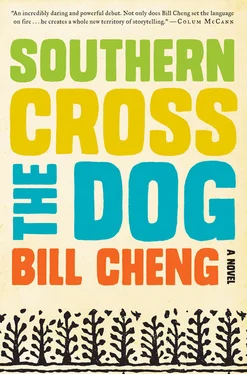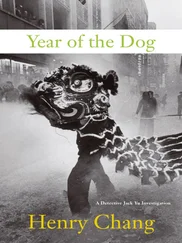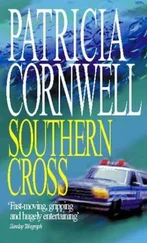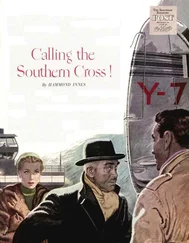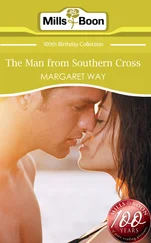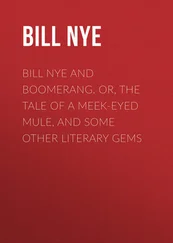The man watched on, a smirk working across his face.
We gon’ on a petit trip real nice-nice, muskie.
Roan crossed to a bucket and filled it from between Robert’s legs. He raised it up and let it spill over Robert’s head. A sun erupted behind Robert’s eyes and he buckled. He heard his own haggard voice fighting in his throat.
But first we gon’ get you nice clean, wash’m up good. Get’r that nigger stink off’a you.
The man took his time bathing him, filling the bucket then pouring it across Robert’s shoulders or on his head. Sometimes he’d cluck his tongue like he was consoling a small child. He soaked a rag in muskrat oil, then he ordered Robert to stand and turn. Roan rubbed him down, working the dark brown cloth hard on Robert’s neck, under his arms, and his groin. The smell was stomach turning. By the time the man had finished, Robert could no longer feel his own body. Only a cherrystone of nausea in the pit of his gut.
When Roan was satisfied, he ordered Robert out of the basin. Robert was shivering and his lips were blue, and the sun seemed to give no comfort. Roan dressed him in a canvas shirt and a pair of hide pants, and for his wrists, a pair of iron shackles. They were old and rusted and must’ve been part of an old animal trap. The thick links of chain were heavy and unfamiliar. It took all his effort to keep his hands up, to keep them from falling toward the earth.
Next came the rabbit box.
Roan held it up in front of him. The box was hickory and a foot deep in every direction. On the bottom was a folding panel that would lock around his neck. Roan was shorter so he had Robert kneel, and he set the box down over his head like a crown. The thing was heavy and uncomfortable, the rugged edges digging into his shoulders. It was a cage, he realized. Hot and moist and airless. Only the narrow slat inches from his nose threw any light, and all around in the invading periphery was a soft gray dark. Something cold and metal tightened around his neck, locking the box in place.
Bon, bon, he heard the man say.
From inside the box, it was hard to make out what was happening. At some point, Bossjohn and Frankie had come out from the dugout and had been arguing with Roan. Robert nursed the hope that they would force him to remove the box, but it did not happen. He felt a yanking on his chain, and so they began. For hours he followed the noise of their footsteps, of the grass passing across their shins — journeying through invisible country. He imagined them, the L’Etangs, passing through the pulsing wilderness.
Robert tired quickly. His head hurt, and it was almost impossible to breathe. Come the afternoon, the air had become warm and sticky and he could smell the tooth rotting in his own mouth. There were times he wanted to throw up, but he forced his mind clear. After what felt like days, they finally stopped. He felt the box raise from off his shoulders and the light hurt his eyes.
Frankie touched his arm.
Sa’sooffee? she asked.
He didn’t answer her. He looked and he realized they’d come to a kind of pond. He stumbled toward the bank and dunked his head into the cool water. He came back up, his eyes shut, his face throbbing. There was a smell, he realized. A stench. He looked out over the water. It was almost still. A cloud of mosquitoes pulsed above the shallows. Flecks of pollen crawled across the surface. For the first time in months, he saw his own reflection. He almost did not recognize himself. What fat there was in his face had dissolved, drawing the skin tight against his cheekbones. He thought, suddenly, that he looked not like Ellis but like his mother. The papery skin at the corners of his eyes, the square squat brow, the narrow bruised-looking lips. How strange family is, haunting your blood, with all those phantom faces lying in wait beneath your own. He felt ill.
Something flickered in the corner of his vision and he turned. There, in the tall reeds, was a mass of yellow and pink. It was an animal. Its belly was ripped open and its head was missing. Strips of moldy blackened skin lay in patches over the cave in the thing’s chest. Flies struggled atop one another, pressing in and out of the yielding meat.
Robert dropped to his knees. His stomach unspooled and he heaved his sick onto the grass. Bossjohn made a clucking noise at the back of his throat.
He was allowed to rest while Roan and Bossjohn went on ahead to check their traplines. Frankie stayed with him. He lay down in the shade as Frankie gave him hunks of fry dough from her ration bag. There were spots in his vision still, blinking in and out, but the blood had calmed inside his chest. Frankie took off her hat and fanned warm slow waves of air against Robert’s neck, shooing the flies from his face. Robert listened to her murmuring as she went in and out of her pack. Here and there he’d hear their name for him — Rowbear. He could cry. What he wouldn’t give to be Rowbear! To be, like a L’Etang, baptized anew in the cold waters. But he was a Chatham and bad stayed stuck to Chathams.
When Roan and Bossjohn returned empty-handed, their faces a sheen of sweat, neither brother spoke. Roan kicked the soft carcass into the water, and they gathered up their things. Robert was placed again inside the rabbit box, and as the wall came down, he thought he could see a note of sorrow in Frankie’s face.

THEY WENT THROUGH THE TRAPPING grounds, and inside the box, Robert did not see the stretches of blighted country — long waterways of dead water, blown-out hills, swaths of nuded grass and timberland. He did not know how in the summer seasons, they used to fat on rabbit and whitetail and shoot coyotes from the trees. For the L’Etangs, the traps themselves turned up little. A squirrel here. A mangy sore-skinned rabbit with hardly the meat or fur to spend the effort. But all throughout, they came across kill like they’d seen by the pond — puddles of spongy viscera rotting in the hot wet sun.
These were signs of panthers. They kept territory in the palmetto to the north and west where they could feed on hog and raccoon, and it was rare to find them east, here, in the beaver grounds. Panther pelts fetched a high price at Fort Muskethead, but crossing a panther was bad luck. They drove away quarry, raided traps, and if they’d gotten this far, it meant that game was scarce all through the swamp.
But Robert saw the kill and he understood; the Dog had found him. He sucked the thick stale air inside the box. The links on his wrists chinked softly. Through the narrow slit in the rabbit box, he could see the wide fan of leaves, the sunlight filtering down through the gauzy canopy above him. There were birds. The machinelike whir of insects tearing through the invisible air around him. They came to a rocky narrow and they filed across in a single line, Bossjohn ahead, and then Roan tugging Robert by his chain. Frankie was behind him. He could hear her light step against the ground. Her hand touched the sweaty blade of his shoulder, navigating him through the forest. Even here, it’d found him.
They stopped that evening at a crumbling shelter in the middle of the swamp. It was a small wood lean-to put up by Pierre L’Etang nearly half a century ago. The walls were thin, pieced from cut timber and roofed with carpets of moss. There were shelves inside, and a small clearing in the dirt for where they’d lay their bedrolls. They refilled their canteens and stocked their pouches with jerky and tack. In the evening they bedded down next to each other, Robert against the wall and Roan wedged beside him.
Night came uneasy over Panther Swamp. A yellow moon moldered in the lower reaches of the sky. It was full and round and oozed like a pustule. Underneath, the air pulsed with cricket song. Heavy birds thrashed in the treetops, then winged soundlessly through the ink-blue air. Robert lay on his roll. He shut his eyes and he listened. He peeled back the night sounds, one by one, until finally he could hear it, clear as a whistle, the long lonesome call of some animal.
Читать дальше
